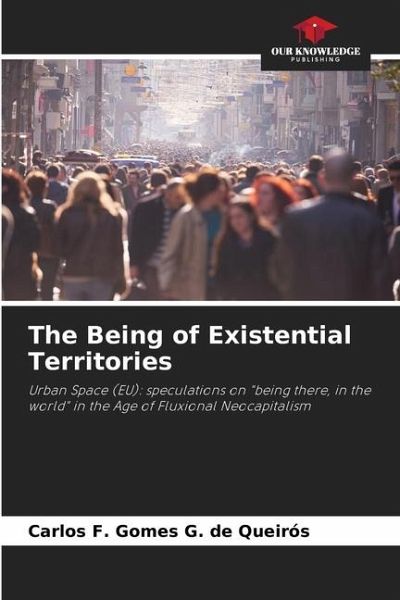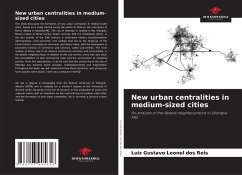
The Being of Existential Territories
Urban Space (EU): speculations on "being there, in the world" in the Age of Fluxional Neocapitalism
Versandkostenfrei!
Versandfertig in 6-10 Tagen
27,99 €
inkl. MwSt.

PAYBACK Punkte
14 °P sammeln!
The German philosopher Immanuel Kant (1724-1804) used to say that whatever you can't count as done, don't do it. Kant's moral philosophy offers us the Hypothetical Imperative, which is an "action-means" to achieve a desired end, like, for example, when our parents told us to study because that was the only way we would get good grades. On the other hand, it also gives us the Categorical Imperative, whose action is, in itself, an end; from this perspective, we perform a good, just and correct act, which presupposes the existence of absolute ends. The hypothesis of a better life can only grow an...
The German philosopher Immanuel Kant (1724-1804) used to say that whatever you can't count as done, don't do it. Kant's moral philosophy offers us the Hypothetical Imperative, which is an "action-means" to achieve a desired end, like, for example, when our parents told us to study because that was the only way we would get good grades. On the other hand, it also gives us the Categorical Imperative, whose action is, in itself, an end; from this perspective, we perform a good, just and correct act, which presupposes the existence of absolute ends. The hypothesis of a better life can only grow and make us reap aromatic and tasty fruit if we plant new humanist values that re-signify our values, not as unstable elastic bands that become hypothetical, for flexible half-discussions at the whim of the powerful, but as solid foundations for a new citizenship, which, by existing, builds its essence and the essence of differentiated, respectful and democratic spaces. The Kantian Imperativescan be good starting points for the reflections that you, the reader, will find in this book and the softness of existentialist ideas will lead you to flirt with the freedom to be what you want to be.












